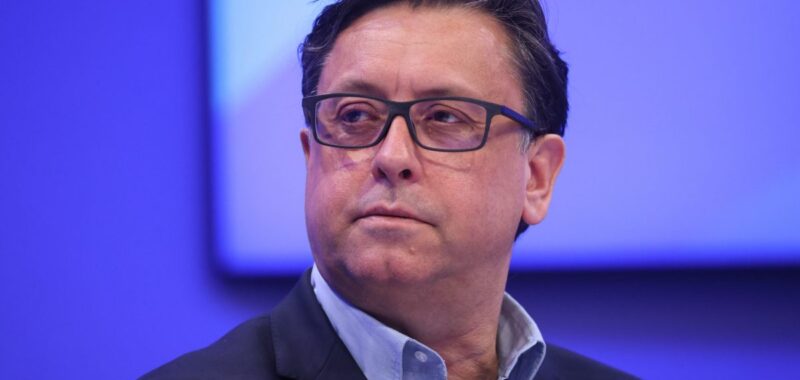
Sanofi profit rose on demand for seasonal vaccines and further growth in its blockbuster skin and asthma therapy Dupixent.
Earnings per share excluding some items reached €2.86 ($3.10) in the third quarter, Sanofi said Friday. That exceeded analysts’ estimates, helped by its influenza and respiratory syncytial virus shots, which saw earlier-than-anticipated sales.
The drugmaker this week raised its annual profit forecast when announcing exclusive negotiations with US buyout firm Clayton Dubilier & Rice for the sale of its consumer health unit.
Sanofi shares rose as much as 2.9% in early Paris trading Friday, extending gains this year to about 11%.
Chief Executive Officer Paul Hudson is ratcheting up Sanofi’s drug-development program to create more medicines like Dupixent, which notched another quarter of record sales. The company is pushing a dozen potential top-selling medicines through costly clinical trials.
The approach is similar to that of rivals including Novartis AG in focusing on cutting-edge therapies, while divesting older medicines and its consumer health division.
Sales of Dupixent rose by 24% to about €3.5 billion in the quarter. The medicine stands to keep generating higher revenue, especially after receiving approval from regulators in Europe and the US to treat the lung condition known as chronic obstructive pulmonary disease.
Growth at the vaccines business was driven in part by the rollout of Beyfortus, a shot that protects babies from RSV.
Merck & Co. also has a rival monoclonal antibody shot in development for RSV. Sanofi’s chief financial officer, François-Xavier Roger, dismissed concerns about competition with Merck’s shot, saying that Sanofi’s jab has higher efficacy and real world evidence of protection in tens of thousands of babies, “which is a high bar to surpass.”
The focus in recent weeks has been on the sale of the consumer health business, called Opella. Roger told reporters that giving the unit the possibility to operate independently was an “immense opportunity” for it to grow. The move will also allow Sanofi to become a pure play biopharma company, he said.
Investor focus may now shift to whether funds from the sale of a stake in Opella “might go to share buybacks or a special dividend,” said Bloomberg Intelligence’s John Murphy in a note.

